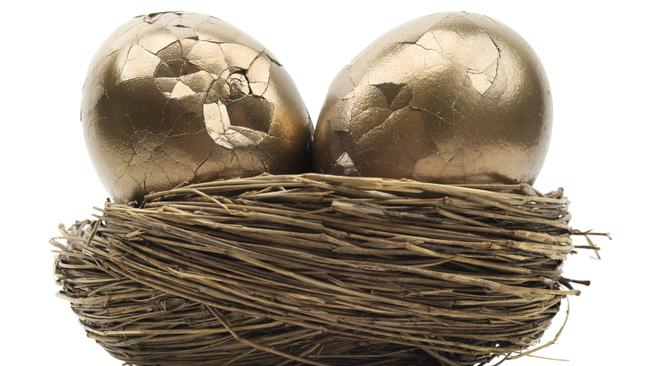SMSFs hit by tax changes as members consider quitting
Australians with self-managed superannuation are in the firing line of planned new taxes, and some are considering extreme steps.
National
Don't miss out on the headlines from National. Followed categories will be added to My News.
Planned changes to superannuation taxes are damaging trust in super, especially among the one million-plus Australians with money in self-managed super funds.
Small business owners, farmers and others with large “lumpy” assets such as real estate in their SMSFs are most at risk of negative impacts, super specialists say, but they warn people not to rush to quit just yet.
Labor’s plans to lift tax on total super balances above $3m were announced in late February.
SMSF Association chief executive officer Peter Burgess said the proposal was “already having a detrimental impact on consumer confidence in the super system”.
“Our members are already fielding calls from clients who are now considering winding up their SMSF and investing outside of the super system,” he said.
Mr Burgess said almost half of new SMSFs were being established by people aged under 45, generally with lower super balances, so the sector should continue to grow.
Total SMSF assets dropped 2.4 per cent last year to $881bn amid falling financial markets, but in the five years prior had jumped 35 per cent.
The SMSF Association has a working group examining the unintended consequences of Labor’s plan to tax earnings on balances above $3m at 30 per cent. Key criticisms have been around its lack of indexation, which means 10 per cent of future retirees will eventually be affected, and the way it taxes unrealised gains.

Wealth for Life Financial Planning principal Rex Whitford said the tax was “bad for everyone because of the unintended consequences”.
People would shift money into assets outside of super, such as residential real estate, raising prices and making life harder for first homebuyers, he said.
Mr Whitford said taxing unrealised gains, such as the rise in value of real estate not yet sold, was a big issue.
“If a bloke has to sell his farm to pay the tax, how does that help the country?” he said.
“If a government can get away with the taxing of unrealised assets in one tax structure, what will be the next structure they will try this on? Will it be family trusts over a certain value? Unrealised gains on companies? Will it be on the family home over a certain value?”
The number of SMSF accounts has barely moved in the past decade, sitting near 1.1 million, as some people wound up their funds amid tough compliance requirements.
“You need the right temperament to be a trustee of a self-managed super fund – it’s a job for life,” Mr Whitford said.
Lightbulb Wealth managing director Heinrich Jacobs said the changes “look like a moving target at the moment”.
“It’s a little early to tell where this is going to land,” he said.
“Obviously it will hurt someone with a high balance if they implement the changes.”
Mr Burgess said people with SMSFs should do nothing for now. “It is still only a proposed new tax and we need to wait for further details and information to be released,” he said.
Originally published as SMSFs hit by tax changes as members consider quitting





